Price definition: price and necessary input research
Besides being purchased from smallholder farming for school feeding, goods must have prices previously established by the Executive Entity, which must rely on the support of partners for this job. The team work between Executive Entities and partners intends to build a methodology to be used for market price checking, that is, for price research. This is an essential step for the good and regular development of purchase from smallholder farming to the PNAE. The prices of foodstuffs acquisition from smallholder farming for school feeding must be compatible to the ones practiced in local markets, according to Paragraph 1 of Article 14 of Law no. 11,947/2009. Therefore, it is important for the purchase to consider the crops of local smallholder farming production.
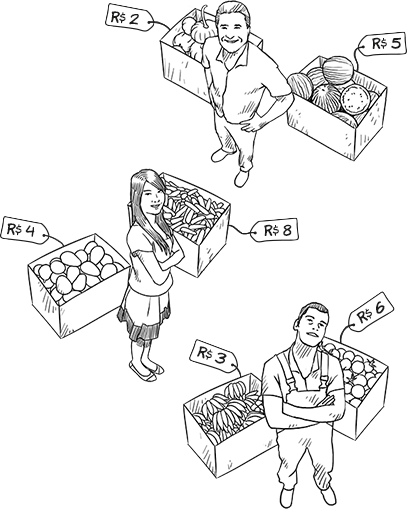
Once prices are determined, the EEx must publish them in a Public Call Notice. We´ll talk about Public Calls in the following unit.
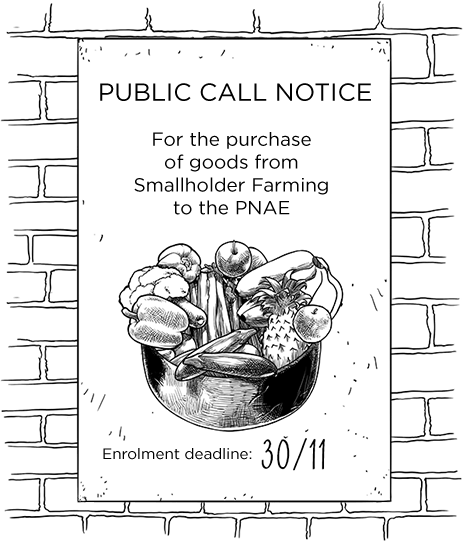
FOOD FOR THOUGHT
Do you have any idea how this research is carried out?
What is taken into consideration to obtain the final price for each product?

Given that the goods to be acquired are preferably from local smallholder farming, price research must be done locally.
The acquisition price of each product will be the average price researched in, at least, three local markets. During price counting, the inputs required in the public call notice must be considered, such as:

- Freight expenses;
- Packaging;
- Taxes and whatever else necessary for the provision of goods.
This price research must give preference to smallholder farming fairs, when there are any.
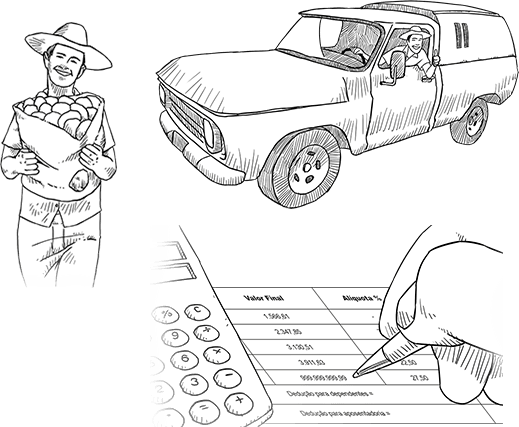
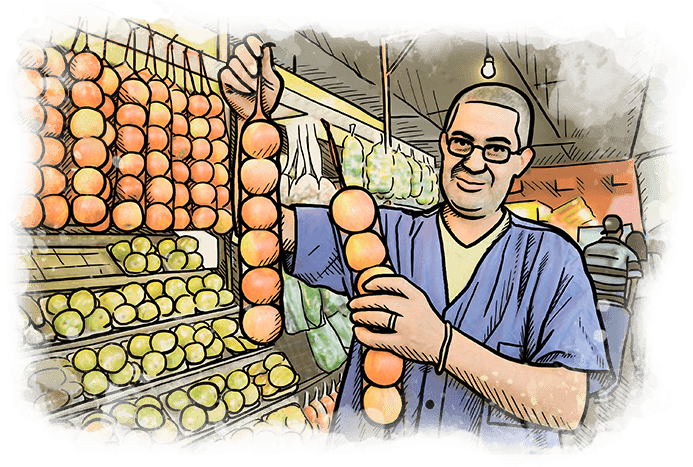
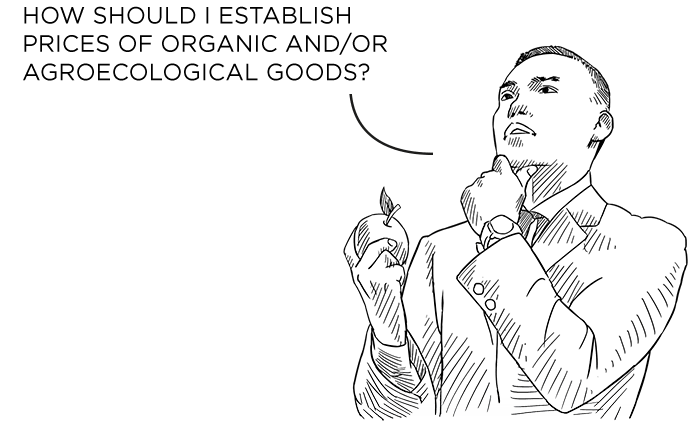
ORGANICS AND AGROECOLOGY
Organic and Agroecological food certification
According to Article 1 of Law no. 10,831/2003, “an organic system of agricultural production is one that adopts specific techniques by optimizing the use of available natural and socioeconomic resources, and respecting cultural integrity of rural communities, aiming for economic and ecological sustainability, maximization of social benefits, minimization of non-renewable energies dependency, employing, whenever possible, cultural, biological and mechanical methods, as opposed to the use of synthetic materials, the elimination of genetically modified organisms and ionizing radiations in any phase of the production, processing, storing, distribution, commerce and environmental protection process”.
Organic and agroecological food
The goal of vegetable and animal organic production is to promote quality of life while protecting the environment. Its main characteristic is being free of pesticides, chemical fertilizers, and synthetic substances that degrade the environment. To be considered organic, a production process must contemplate the responsible use of soil, water, air and other natural resources, and respect social and cultural relations. Brazil already occupies an important position in the worldwide organic production.
Two concepts are vital in organic production: the relationship of trust between producer and consumer, and quality control. The seal SisOrg is obtained by an Auditing Certification or by a Participatory Guarantee System. Smallholder farmers are the only ones authorized to sell directly to consumers without holding a certification, as long as they are members of some civil society oversight organization registered in inspection organizations.
The Agroecology Coordination (Coagre), from the Secretariat of Agriculture Development and Cooperativism (SDC), is the sector within the Ministry of Agriculture that answers to actions of organic agriculture development. The promotion, incentive, elaboration of rules and implementation of control mechanisms are a few of its functions.
Agroecology
Agroecology may be considered a scientific discipline, a science, a movement or an agricultural practice that integrates not only scientific knowledge, but also traditional, popular knowledge that comes from smallholder farmers’ experiences, as well as indigenous communities and others. This practice is based on the systematization and consolidation of knowledge for non-industrial agriculture. In this sense, as it understands agroecosystems as spaces established by mankind, agroecology seeks to integrate ecological, agricultural and socioeconomic principles.
Bibliography
- Acquisition of smallholder farming goods for school feeding – FNDE/PNAE. Manual. 2nd edition. 2015.
- Ministry of Agriculture. Available at http://www.agricultura.gov.br/desenvolvimento-sustentavel/organicos/o-que-e-agricultura-organica.
- www.embrapa.br/en/busca-geral/-/busca/agroecologia. Acessado em 18 de fevereiro de 2016.
